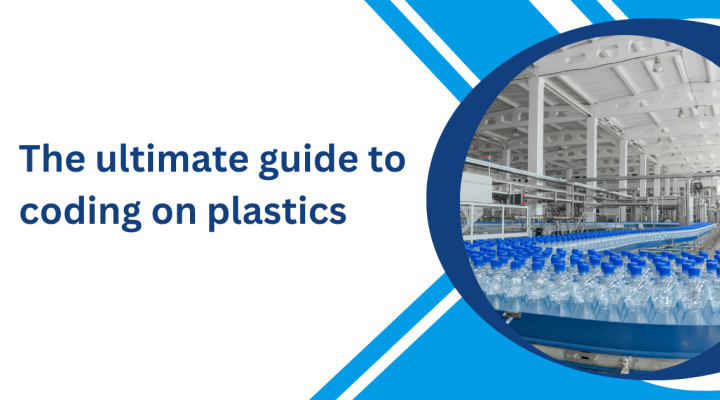
Coding on plastics is one of the most crucial and complex steps in the production process. Whether you're printing expiry dates on pharmaceutical bottles or batch codes on beverage containers, success depends on matching the right technology with the right material.
As a leader in industrial coding and labelling solutions, we help manufacturers navigate the technical challenges of printing on plastics with clarity, reliability, and confidence. With years of expertise, we’ve built a reputation as the trusted partner for coding on any substrate - and that includes every major plastic in the packaging industry.
Unlike paper or cardboard, plastics vary widely in surface energy, flexibility, and thermal properties. That means each material responds differently to ink, heat, or laser energy. A method that works well on a rigid HDPE bottle might fail completely on a soft LDPE film or a heat-sensitive PVC sleeve.
Precision matters. Ink must adhere without smudging. Codes must remain legible throughout the product's lifecycle. And most importantly, your system must integrate seamlessly into existing production lines - without slowing you down.
This is where our expertise comes in.
Used widely in bottled water, soft drinks, and pharmaceutical packaging, PET is lightweight, clear, and recyclable. However, it’s non-porous and often cold or wet at the time of coding.
For high-speed lines, continuous inkjet (CIJ) printing with ethanol-based, fast-drying inks is a reliable choice. Laser coding is also popular, offering permanent marks without consumables - ideal for high-volume beverage bottlers.
Found in milk jugs, cleaning products, and medicine containers, HDPE presents a waxy, low-energy surface that can resist standard inks.
CIJ remains the most effective solution here - especially when paired with adhesion-enhancing inks specifically developed for plastics. For applications involving labels or pouches, thermal inkjet (TIJ) or thermal transfer overprinting (TTO) may be used depending on the setup.
This softer, more flexible polymer is common in squeeze bottles and film packaging. Flexibility can cause ink to crack if not formulated correctly.
CIJ with flexible, resin-modified inks are ideal. In the case of plastic films, TTO is often the go-to, enabling high-resolution variable data on flow wraps and sachets.
A common choice for closures, medicine bottles, and food containers, PP has a low surface energy, similar to HDPE.
Laser coding is often used on PP due to its crisp, abrasion-resistant finish. However, where laser is not suitable, CIJ with specialised inks can provide excellent performance.
Used in trays, disposable packaging, and some pharma applications, PS is brittle and heat sensitive.
Here, TIJ shines by delivering high-quality codes with no heat build-up. Low-power lasers can be used with care, but too much energy can cause cracking or discoloration.
PVC is used in shrink sleeves, blister packs, and flexible containers. Its chemical composition can be hazardous under high heat, making laser a risky option without proper safety measures.
For PVC, CIJ and TTO are usually the safest and most effective solutions. It’s important to choose the right ink and ensure consistent drying and curing conditions.
When it comes to coding on plastics, there are a few universal questions to ask before selecting a technology:
These questions guide our team in recommending the best fit from technologies like CIJ, TIJ, TTO, and laser coding. At Industrial Printer Services Ltd, we don’t just sell machines - we deliver a complete solution.
We’ve worked with global brands, start-ups, and contract manufacturers to solve some of the toughest plastic coding challenges in the industry. From setting up high-speed bottling lines to optimising small-batch medical packaging, we provide:
Our mission is to keep your operation running smoothly, your codes compliant, and your customers confident in the quality of your packaging.
Whether you're struggling with ink adhesion, laser safety, or inconsistent print quality, we're here to help. Contact us today to speak with a coding expert and learn how we can tailor the ideal solution for your plastic packaging.